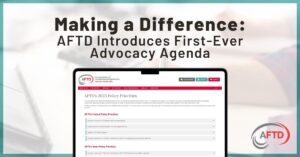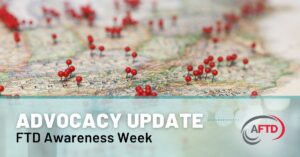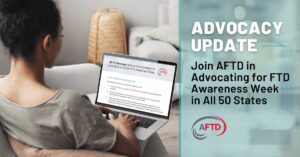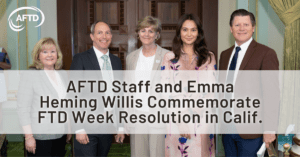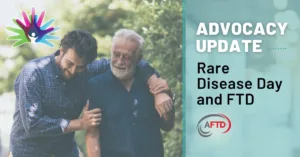AFTD Advocacy




What is an advocate?
An advocate engages and educates elected officials on key issues. Whatever your political affiliation, our advocates are just like you – people who care about FTD, who want their elected officials to do more to address the impact of this disease, and who are ready to make a difference.
We advocate for legislative, policy, and regulatory changes to improve quality of care and quality of life for people with FTD and their families through:
- improving dementia care and services; ensuring they are inclusive of FTD disorders
- increasing access to dementia diagnosis and community-based care
- expanding funding for medical research and public programs serving people with dementia and their caregivers
Now is the time to join us in persuading our policymakers to take direct action on these crucial matters.
Comments from AFTD on Policy
March 3, 2025: Statement from The Association for Frontotemporal Degeneration (AFTD) on Disruption of Scientific Research Funding and Activities
August 30, 2023: AFTD provides input to CMS on GUIDE Model for dementia care
August 15, 2023: AFTD submits comments to ACL on updated regulations of the Older Americans Act advocating for expanded access for people under 60 with FTD
August 11, 2023: AFTD Ambassadors Offer Insights at July NAPA Meeting




